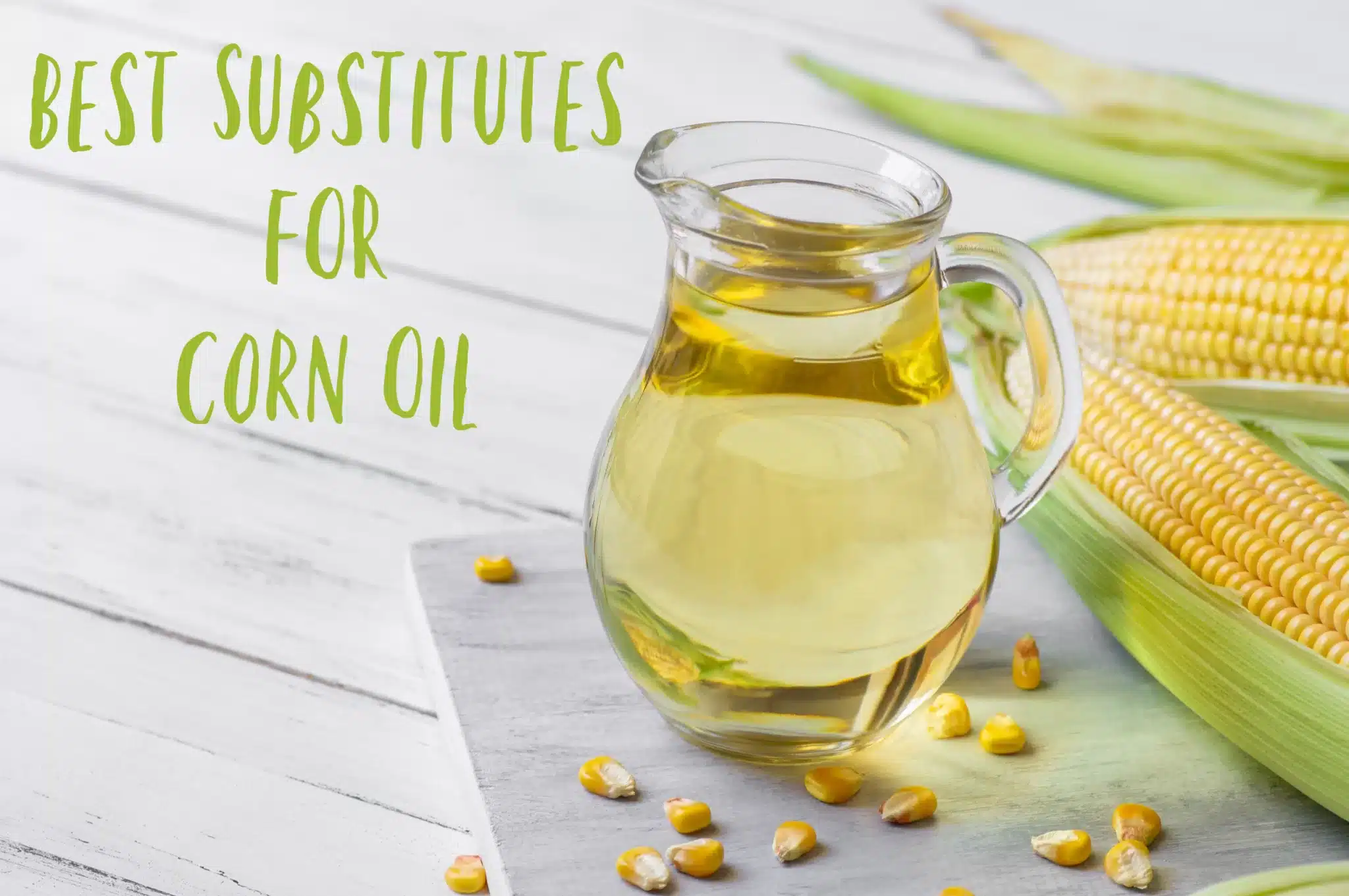Whether you’re in the midst of a recipe or simply looking to make a healthier choice in your cooking, the question of substituting vegetable oil for corn oil often arises. Both vegetable oil and corn oil are common kitchen staples, but can you substitute vegetable oil for corn oil?
In this article, we’ll explore the versatility and compatibility of these two oils in various culinary applications, helping you make informed choices in the kitchen
Differences between vegetable oil and corn oil
Composition
When it comes to composition, vegetable oil and corn oil have some key differences. Vegetable oil is a broad term that encompasses various types of oils derived from plants, such as soybean oil, canola oil, and sunflower oil. On the other hand, corn oil is specifically extracted from corn kernels.
Vegetable oil is typically a blend of different oils, which gives it a neutral flavor and a higher smoke point. Corn oil, on the other hand, has a distinct flavor and a slightly lower smoke point compared to vegetable oil. The composition of these oils affects their performance in different cooking methods.
Flavor
The flavor of vegetable oil is often described as mild and neutral, making it a versatile choice for various recipes. It doesn’t overpower the taste of other ingredients and allows their flavors to shine through. On the contrary, corn oil has a slightly nutty and buttery flavor that can add a unique taste to dishes.
The choice between vegetable oil and corn oil depends on the desired flavor profile of the recipe. If you prefer a more subtle taste, vegetable oil is a suitable substitute. However, if you want to enhance the flavor with a hint of nuttiness, corn oil may be the better option.
Smoke point
The smoke point of an oil refers to the temperature at which it starts to smoke and break down, releasing harmful compounds and producing an unpleasant taste. The smoke point is an important factor to consider when choosing an oil for cooking methods that involve high heat.
Vegetable oil generally has a higher smoke point compared to corn oil. This makes it a better choice for deep frying, sautéing, and stir-frying, where high temperatures are involved. Corn oil, although it has a slightly lower smoke point, can still be used for these cooking methods, but extra caution should be taken to prevent it from reaching its smoke point.
Can vegetable oil be substituted for corn oil?
Yes, in most cases
In most cases, vegetable oil can be substituted for corn oil without any major issues. Both oils have similar properties and can perform well in a wide range of recipes. The mild flavor of vegetable oil makes it a versatile substitute for corn oil, especially when the distinct flavor of corn oil is not crucial to the dish.
Considerations for specific recipes
While vegetable oil can generally be used as a substitute for corn oil, there are a few considerations to keep in mind for specific recipes. Some recipes may specifically call for corn oil due to its unique flavor profile. In such cases, substituting vegetable oil may alter the taste of the dish.
Additionally, certain recipes may require the specific properties of corn oil, such as its lower smoke point or its ability to enhance the texture of baked goods. It’s important to consider these factors before substituting vegetable oil for corn oil in such recipes.
Recipes where vegetable oil can be substituted for corn oil

Baking
In baking recipes, vegetable oil can generally be substituted for corn oil without any significant changes in the final result. Both oils have similar fat content and can provide moisture to baked goods. However, keep in mind that the flavor of the final product may be slightly different when using vegetable oil instead of corn oil.
Deep frying
Vegetable oil is an excellent substitute for corn oil in deep frying. Its higher smoke point makes it suitable for frying at high temperatures, ensuring crispy and delicious results. Whether you’re frying chicken, french fries, or other deep-fried treats, vegetable oil can be used interchangeably with corn oil.
Sautéing and stir-frying
When it comes to sautéing and stir-frying, vegetable oil is a great substitute for corn oil. Its higher smoke point allows for quick and efficient cooking without the risk of the oil breaking down and imparting a burnt taste to the dish. Whether you’re stir-frying vegetables or sautéing meat, vegetable oil can be used in place of corn oil.
Recipes where corn oil should not be substituted
Recipes that specifically call for corn oil
If a recipe specifically calls for corn oil, it’s best to use corn oil to ensure the desired flavor and texture. Some recipes, especially those with a Southern or Mexican influence, rely on the distinct flavor of corn oil to enhance the authenticity of the dish. In such cases, substituting vegetable oil may result in a noticeable difference in taste.
Recipes that require a specific flavor profile
Certain recipes, such as cornbread or corn muffins, rely on the unique flavor of corn oil to achieve the desired taste. Substituting vegetable oil in these recipes may alter the flavor and texture of the final product. It’s important to consider the specific flavor profile required by the recipe before making any substitutions.
Conclusion

In conclusion, vegetable oil can generally be substituted for corn oil in most recipes. Both oils have similar properties and can perform well in various cooking methods.
However, it’s important to consider the specific requirements of the recipe, such as flavor and texture, before making any substitutions. While vegetable oil is a versatile substitute, there are instances where the distinct flavor of corn oil or its specific properties are necessary for the best results.
By understanding the differences between vegetable oil and corn oil, you can confidently make substitutions in your recipes while still achieving delicious outcomes.
Originally posted 2023-11-09 03:20:26.


